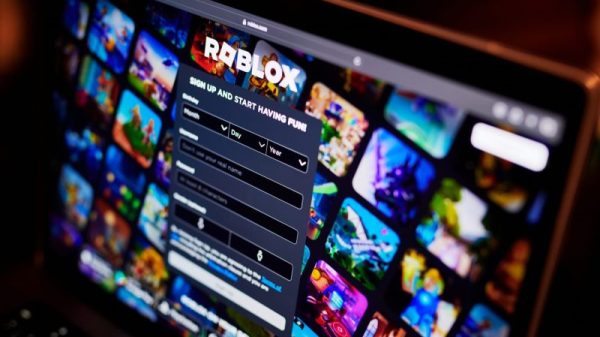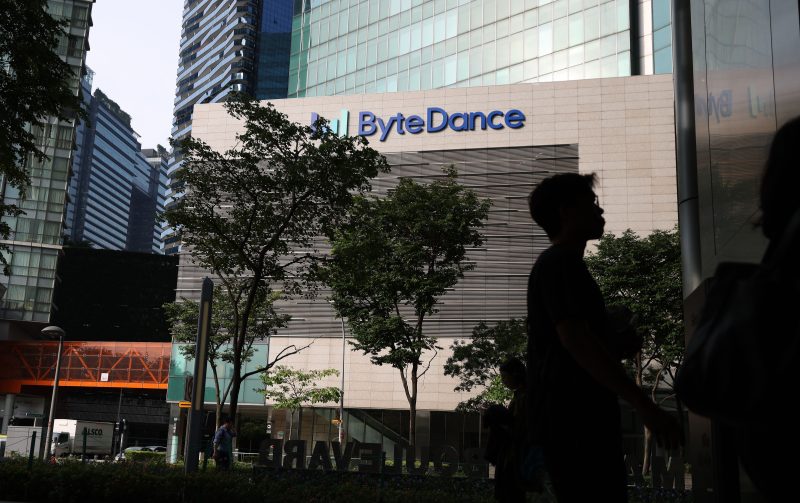TikTok’s China-based parent company and the U.S. government are back at the negotiating table over the fate of the immensely popular video app in the United States.
The renewal comes six months after the Biden administration told ByteDance that it was done negotiating and that the Chinese company had basically two options: Sell TikTok or wait for Congress to pass a bill that could ban the app nationwide.
Now, however, the talks have been revived amid doubts the administration has the authority to ban TikTok on its own and signs that a proposed law that would have given it more authority has stalled in Congress under fire from both the left and right.
The re-engagement also highlights politicians’ waning interest in facing public backlash by fighting a social media juggernaut that many Democrats, and a growing number of Republicans, hope could propel their chances during the 2024 election and beyond. The Republican presidential candidate Vivek Ramaswamy posted to X on Tuesday that he was joining TikTok, saying, “The fact is that many young voters are [using it] & we’re not going to change this country without winning.”
There’s been no official indication that the government’s position on calling for divestiture has changed. But teams from ByteDance and the Committee on Foreign Investment in the United States, which has oversight authority over the U.S. operations of foreign businesses, met last week at the Treasury Department in Washington to again walk through a proposal ByteDance made more than a year ago to assuage U.S. security concerns about TikTok. The meeting was confirmed by four people familiar with the matter who spoke on the condition of anonymity because they were not authorized to discuss the talks.
The Justice Department declined to comment. ByteDance did not respond to requests for comment. CFIUS, the White House and the Treasury Department also did not respond.
Negotiations over TikTok’s operations had been going on for nearly three years when the Biden administration delivered its ultimatum. Now CFIUS and ByteDance have renewed discussions centered on a sweeping plan ByteDance introduced last year under which the Chinese company would cede authority over TikTok’s U.S. operations to a three-person board whose members CFIUS would essentially select.
The broad contours of the plan have been known publicly since late last year, when TikTok began briefing lawmakers, researchers and journalists on what it had proposed. But a copy of the confidential draft agreement, reviewed by The Washington Post, shows the plan would grant the U.S. government unprecedented authority over a platform that claims 150 million users nationwide.
The provisions in the 90-page document, a version of which was first reported by Forbes, are far more restrictive than anything officials have ever sought over the company’s American peers, such as Facebook and Google, and would raise the risk that the government could subtly shape what TikTok users see — similar to what the app’s critics have warned of regarding influence from the Chinese state.
A subsidiary called TikTok U.S. Data Security, which would handle all of the app’s critical functions in the United States, including user data, engineering, security and content moderation, would be run by the CFIUS-approved board that would report solely to the federal government, not ByteDance.
CFIUS monitoring agencies, including the departments of Justice, Treasury and Defense, would have the right to access TikTok facilities at any time and overrule its policies or contracting decisions. CFIUS would also set the rules for all new company hires, including that they must be U.S. citizens, must consent to additional background checks and could be denied the job at any time.
All of the company’s internal changes to its source code and content-moderation playbook would be reported to the agencies on a routine basis, the proposal states, and the agencies could demand ByteDance “promptly alter” its source code to “ensure compliance” at any time. Source code sets the rules for a computer’s operation.
If the company does not say how it would implement the changes within three days or rejects the request outright, the TikTok U.S. subsidiary would be forced within two days to suspend the app for all U.S. users until it complied.
ByteDance said it has already implemented some measures of the $1.5 billion proposal, including shifting most of its 1,500 U.S. employees into the subsidiary and moving all U.S. user information into servers run by Oracle, the American tech giant.
Under the agreement, Oracle and five other independent auditing firms would also be expected to monitor data flows in and out of TikTok’s U.S. subsidiary, review its source code, verify the deletion of old user data and ensure TikTok is complying with its part of the deal. The full agreement approving deep government involvement and extensive third-party auditing, however, has yet to be signed.
ByteDance submitted the proposal in August 2022 following years of negotiations with CFIUS, a secretive group that includes officials from nine federal agencies and reviews foreign-linked business deals for national security risks.
The Biden administration did not respond to the plan until March, when CFIUS told ByteDance the plan, known as Project Texas, would not proceed and that the company had few options but to sell its TikTok stake. At the same time, the White House announced its support for the Restrict Act, a bill led by Sens. Mark R. Warner (D-Va.) and John Thune (R-S.D.) that would give the government more power to limit or ban apps linked to foreign “adversary” countries.
The measure, which had been pitched as a way to unite TikTok’s critics, was instead widely criticized, with some Democrats saying the anti-TikTok push bolstered “Red Scare”-style “fearmongering” and some Republicans warning of any bill that would “give new open-ended authority to federal bureaucrats” or “emulate Chinese speech bans.”
In May, with the bill’s momentum fading, CFIUS officials sought another meeting with ByteDance attorneys to discuss technical ways to address the government’s concerns, signaling a path for the company to stay running without a forced sale, two people familiar with the discussions said. CFIUS requested another meeting last week to discuss how much of the plan had already been implemented.
Rachel Cohen, a Warner spokeswoman, said the senator continues to work toward passage of the legislation. “We need a comprehensive process for dealing with national security threats from foreign-based technology, rather than playing Whac-a-Mole attempting to tackle each new challenge as it pops up,” she said.
TikTok’s critics in Washington have warned that the company is vulnerable to meddling by China’s surveillance state, either by capturing U.S. user data or tampering with the recommendation algorithm that fills TikTok viewers’ feeds. But they have provided no evidence that such interference has taken place, and the company has repeatedly dismissed the claims.
TikTok’s critics have also said they’re unconvinced that the proposed agreement would go far enough, telling TikTok chief executive Shou Zi Chew during a five-hour hearing in March that no option but a full ban or forced sale would suffice.
Rep. Frank Pallone Jr. (D-N.J.) said he believed that, even if Project Texas were approved, “the Beijing communist government will still control and have the ability to influence what you do.” Rep. August Pfluger (R-Texas) also complained about its name, a reference to Oracle’s Texas headquarters: “We stand for freedom and transparency and we don’t want your project.”
Some lawmakers have said they’re still working on alternative approaches to regulate or block TikTok, but the discussion has largely faded from public view. Some agency officials have said they are focusing on bigger issues or policy debates and don’t want the responsibility of policing one of America’s most in-demand social media apps.
Recent committee hearings on CFIUS and China have barely touched on TikTok, focusing instead on issues related to semiconductors or real estate. Commerce Secretary Gina Raimondo did not discuss TikTok with Chinese officials during her recent widely watched trip to Beijing and Shanghai, and TikTok also was not mentioned when Republican presidential candidates met for their first debate last month.
The federal dealmaking with TikTok could be made more complex given an ongoing legal battle over how the government and social media giants interact. The Biden administration on Wednesday asked the Supreme Court to halt a lower court’s order blocking some federal agencies from working to “coerce or significantly encourage” the companies to remove posts with which it disagrees.
One official in a CFIUS member agency, who spoke on the condition of anonymity because they were not authorized to discuss internal positions, said they suspected the reengaged talks between CFIUS and ByteDance were likely fueled by political pressure from China hawks in Congress and would likely hit the same stalemate.
“We feel the need to say a bunch of stuff due to pressure from the Hill, but it’s not going anywhere,” the person said. “No one wants to bang on TikTok in an election year.”
Ellen Nakashima and Jeff Stein contributed to this report.



























